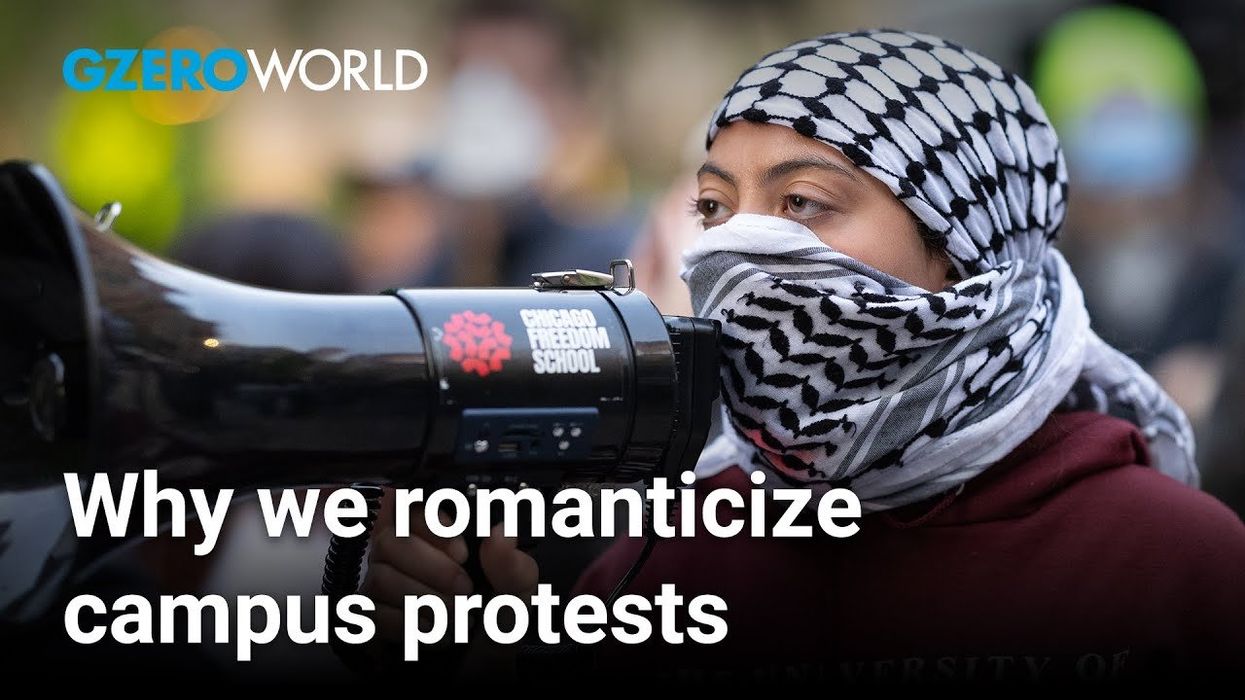GZERO World Clips
Gaza protests highlight the need to build cooperation vs. confrontation, says Eboo Patel
Eboo Patel, founder of Interfaith America, urges college students to shift from confrontational to cooperative protests, emphasizing the need to focus on an anti-war message rather than being distracted by demands like disbanding campus police.
May 14, 2024



